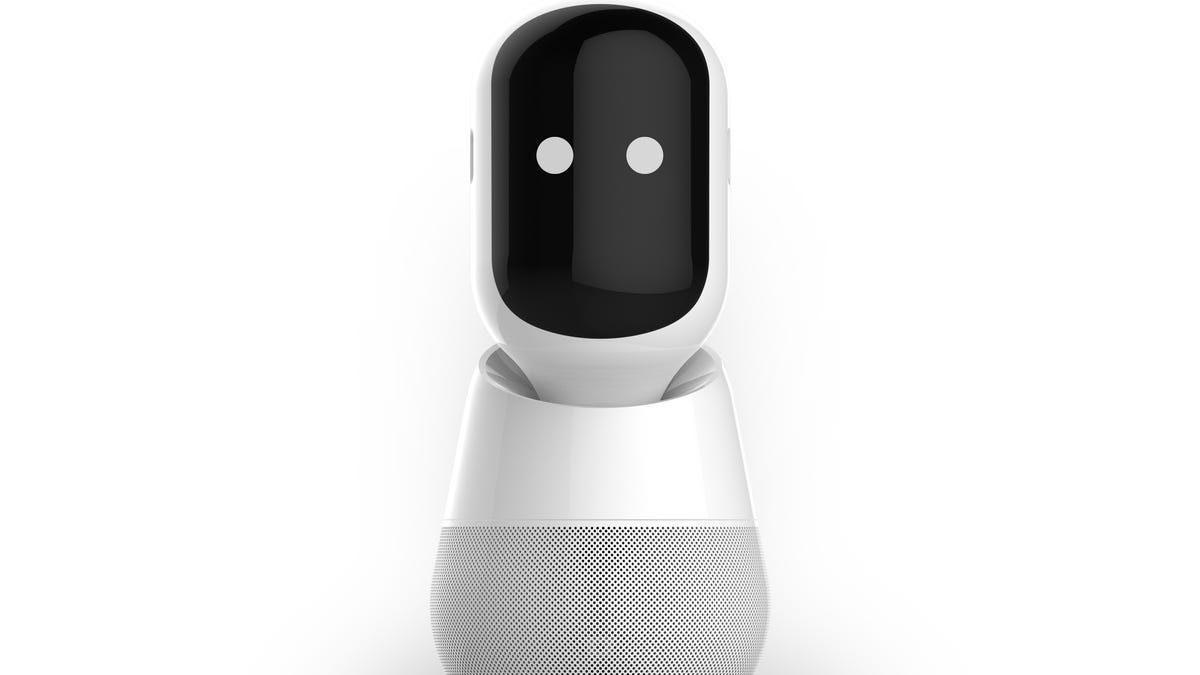Samsung sees emotional robots, voice-activated light switches in our future
The Korean electronics giant hopes its reference designs will inspire actual products using Samsung's Artik chips.

A light switch that you can talk to and that responds to your questions. A robot that shows emotions. A home security system that tells the difference between people and animals.
Sounds pretty cool, right?
Too bad those smart devices aren't hitting store shelves anytime soon. The three products are so-called reference designs that Samsung created to show what kind of devices are possible with its Artik line of chips. Samsung is hoping that its partners create products using those processors and then sell the gadgets themselves.
"We're not going to put these in a box and ship them to Best Buy," Curtis Sasaki, Samsung vice president of ecosystems and Internet of Things general manager, said in an interview ahead of Samsung's developer conference, which starts Wednesday. But "we're building very robust, what looks like consumer-shippable products."
"Ambient" is a light switch that has a built-in microphone so you can ask questions. "Otto" is a small "home companion robot" with an HD camera on its head and a display with blinking eyes. You can control it with your smartphone, moving its head to see what's in the room, or issuing voice commands like you would to Amazon Echo.
And the "NightHawk" home security system has cameras that tell you if you have an intruder at your front door or if it's just Fido waiting to be let inside.
"I don't think any other company is going to this length to build this quality of reference designs," Sasaki said.
Samsung may be the world's biggest smartphone and TV maker, but it also has a huge business designing and manufacturing chips for customers. That includes the Artik chip family for powering new smart devices that play into the Internet of Things. The company's Strategy and Innovation Center business unveiled the processor a year ago, putting it in more direct competition with Intel, Qualcomm and others in the quest to connect everything.
The Artik line of processors combines hardware and software to help companies easily build Internet-connected devices. One of Artik's first customers was Samsung itself.
Reference designs are common in the technology industry, particularly for chipmakers who want to show hardware designers what's possible. Most of the time those devices never get sold under the chipmakers' names. Instead, they hit the market under their customers' brands. For instance, Qualcomm created the Toq smartwatch when wearables first started grabbing attention to help customers think of designs. It sold some of the devices directly to consumers, but partners such as Timex -- with its Ironman One GPS+ -- released slightly tweaked versions of the watch under their own brands.
Courting developers
Samsung showed off the reference designs Wednesday during its developer conference at the Moscone Center in San Francisco, the same location Apple will hold its developer confab in June.
Samsung held its first such event in late 2013 to help set it apart from all the other hardware makers using Google's Android software. It's getting harder and harder to differentiate on hardware alone, and Samsung needs developers to boost its own ecosystem and connect various devices together, including its VR headsets and Gear smartwatches. The idea is that will make customers more loyal to its devices and give them software and services they really use.
Along with the reference designs, Samsung also introduced more tools and announced new partners to help developers use its Artik chips. It also introduced the Artik Cloud, which will let companies connect their smart home devices to products made by others.
The goal is to take different products that today don't talk and blend them together to create new experiences, like your lights turning on whenever you open your front door. Samsung said it would even work with Alexa, Amazon's popular digital voice assistant, so you can tell Alexa to turn on your lights.
"You want all of those [smart home] devices to talk to together," Abhi Rele, Samsung director of product marketing for Samsung's Strategy and Innovation Center, said in an interview. "Today a lot of that is custom work people need to do. But with the Artik Cloud, you're able to easily wire up or connect those devices."
One of the first companies using the Artik Cloud is LeGrand, a maker of light switches and dimmers, plugs and other building automation products.

